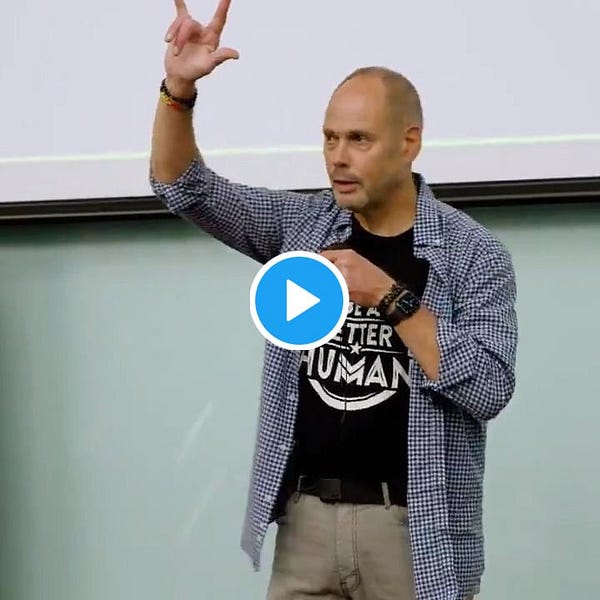On the shortness of life: Lessons from Seneca
“We are not given a short life but we make it short, and we are not ill-supplied but wasteful of it.”
In On the shortness of life by Seneca, the Roman Stoic philosopher explains how time is really all we have. It is arguably the single most important thing in life. One of his most famous quotes comes from the book: “We are not given a short life but we make it short, and we are not ill-supplied but wasteful of it.”
Seneca’s ideas have resonated over the course of the last 2,000 years. Heeding advice from author Ryan Holiday, I read the book last month and re-read parts this week at the beach, leaving plenty of notes/sticky notes and highlighted sentences. It is remarkable how what Seneca wrote 2,000 years ago -- value time over money, relationships over material things, internal peace over external recognition -- has the same relevance today as it did then. Perhaps his lessons are even more useful today in our times of political division, a pandemic, unlimited distractions, news, commitments and cell phones.
Here are a few takeaways from On the shortness of life ($5 on Amazon). As always, let me know what you think in the comments or touch base directly.
Value time over money. Seneca points out that many humans can easily assess their net worth or the worth of objects they own. But what about our time? “No one sets a value on time,” he writes. “All use it lavishly as if it cost nothing. But see how these same people clasp the knees of physicians if they fall ill and the danger of death draws nearer, see how ready they are, if threatened with capital punishment, to spend all of their possessions in order to live.” Seneca says we should ask ourselves how we can make the most of our time. The stoics believed we could leave Earth at any moment, so we ought to treat our time for what it is: precious. Let’s enjoy today and not be wasteful of our gift of time.
Every age is a gift. Young people may be criticized for not having enough money or experience. Or both. Older people may be knocked for being too slow, not as flexible, not as savvy and so on. But Seneca writes that we should not be confined by “the same bands that shut others in.” He says we ought to “free ourselves from the limitations of the human race.” All ages serve us. If we are older, embrace experience and perspective. If we are younger, embrace having energy and plenty of time to try out the world, make mistakes, meet new people. “Has some time passed by?” Seneca writes. “This he embraces by recollection. Is time present? This he uses. Is it still to come? This he anticipates. He makes his life long by combining all times into one.”
Comparison is the thief of joy. This is a saying attributed to Theodore Roosevelt and many others. But thousands of years ago, Seneca was saying basically the same thing. There’s a passage in On the shortness of life in which he mentions how many look up to the rich and famous. Sometimes, there's a good reason for this, and charity, role-modeling and other actions for the greater good are admirable. But he writes how we are all very similar, and there’s no need to envy or obsess over people who “have more” than we do. Why compare our everyday life to someone else’s highlight reel?
It’s not that life is terribly short, but that we waste a lot of life. Don’t hold back, Seneca says. Don’t squander this day, which is a gift. William Penn put it this way: “Time is what we want most, but what we use worst.” In Seneca’s words: “Life is long enough, and it has been given in sufficiently generous measure to allow the accomplishment of the very greatest things if the whole of it is well invested.” He continued to say, “The life we receive is not short, but we make it so.” He later writes how we ought not to yearn for the future or be weary of the present or regretful of our past mistakes and shortcomings. No, let’s see each experience as a gift, something to be learned from, and keep appreciating the power of right now.
Slow down. One of the underlying messages is to look for ways to slow down. Eliminate excess. Eliminate clutter, extra commitments, things that don’t move the needle. This overlaps with the bullet point above, but it’s worth expanding on the idea of how we can elongate life by cutting out the unnecessary and doing less. “Life will not remind you of its swiftness,” he writes. Life can move fast and get away from us at times if we let it. But Seneca alludes to the power of acknowledging the fleetingness of life. It can be easy to forget how impermanent this is, how fragile and breakable we are, how temporary our existence is.
One thing that inspired me: Ernie Johnson’s speech to the Alabama football team. Johnson is well-known in sports TV. “Be a better human. Make somebody’s life better.” A five-minute video with an inspiring message.
A tweet I’m pondering:
What we can do right now to feel better: Go for a short walk outside, call a friend or loved one, and drink more water. I’ve never not felt better after doing all three.
Be grateful and celebrate your gifts,
Matthew





Sometimes I worry about your last bullet point, “SlowDown”. Sometimes I think I’m not doing enough. But maybe that’s OK!